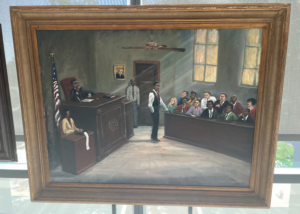|
Getting your Trinity Audio player ready...
|
Human Rights Activists stand as beacons of hope and courage, striving to protect and promote the fundamental rights and dignity of all individuals, irrespective of their backgrounds or circumstances.
This article pays tribute to these champions of justice. It explores their motivations, historical significance, as well as the enduring impact of their efforts. From historic figures responsible for the path to contemporary heroes fighting on the frontlines. Human rights activism remains an unwavering force of positive change.

Defying Injustice – The Roots of Human Rights Activism
The roots of human rights activism trace back to ancient civilizations. To at time when the first seeds of empathy and compassion were sown. Throughout history, visionary individuals challenged the status quo. They did so, often risking their lives to defy injustice. From the abolitionists fighting against slavery to suffragettes demanding women’s rights, early human rights activists laid the groundwork for the movements that would follow.
Iconic Human Rights Activists Through History
Throughout history, iconic human rights activists have left an indelible mark on society through their unwavering dedication to justice. Figures like Mahatma Gandhi, who led India’s nonviolent struggle for independence, and Nelson Mandela, who fought against apartheid in South Africa, inspire generations with their commitment to peace and equality.
The Universal Declaration of Human Rights
The Universal Declaration of Human Rights stands as a turning point in the history of human rights activism. It was adopted by the United Nations General Assembly on December 10, 1948. Its drafting, by a diverse group of representatives from different cultural and legal backgrounds. The UDHR proclaims that “all human beings are born free and equal in dignity and rights.”
It lays the foundation for the modern human rights framework. It affirms the universality of human rights, as well as the responsibility of governments to protect them.
Human Rights Activism in Modern Times
In the contemporary world, human rights activists continue to raise their voices against discrimination, oppression, and injustice. The proliferation of digital communication has connected activists from diverse backgrounds, facilitating global solidarity and amplifying their messages.
Challenges and Perseverance
Human rights activism is not without its challenges. Activists often face threats, persecution, and violence from oppressive regimes and powerful entities seeking to suppress dissent. Many risk their safety and freedom to stand up for the rights of others.
Women as Human Rights Activists
Women actively play a pivotal role in human rights activism, fearlessly fighting for gender equality and the rights of marginalized groups. Throughout history, society often overlooked and overshadowed women’s vital contributions to human rights movements. Nevertheless, activists like Rosa Parks, who challenged segregation in the United States, and Rigoberta Menchú, a Guatemalan indigenous rights advocate and Nobel laureate, successfully bring greater recognition to the indispensable role of women in the struggle for justice.
The Rising Generation of Human Rights Activists
The rising generation takes the lead in human rights activism, displaying a keen sense of justice and a strong determination to shape a better future. From participating in student-led demonstrations during the Civil Rights Movement to organizing global youth climate strikes, young activists actively stand at the forefront of transformative change.
Their passion for human rights issues, coupled with their adept use of technology, actively brings renewed energy and urgency to the fight for a just and equitable world.
Impactful Movements – Collective Actions for Human Rights
Collective actions actively drive human rights activism, as individuals proactively unite to challenge oppressive systems and demand change. The civil rights movement in the United States, the anti-apartheid movement in South Africa, and the Arab Spring uprisings in the Middle East serve as powerful examples of collective movements that actively shake the foundations of injustice.
Whether participating in peaceful demonstrations, implementing boycotts, or launching online campaigns, collective actions actively hold the potential to create significant social and political transformations.
Funding Human Rights Activism
The sustenance of human rights activism actively relies on funding. Advocacy organizations, non-governmental organizations (NGOs), and grassroots movements actively require financial resources to carry out their work effectively.
Funding for human rights activism actively comes from a variety of sources. This includes individual donors, philanthropic foundations, and government grants, all pushing in real money for the cause. However, actively ensuring the independence and autonomy of human rights organizations from undue influence remains a critical challenge.
By actively supporting and empowering human rights activists, we can collectively advance towards a world where every individual actively enjoys their rights and freedoms.
Conclusion
As we look back on the remarkable achievements of human rights activism, we get more reminders. Reminders that the journey toward equality and justice is an ongoing process. The torch of human rights must be carried forward by future generations. People united in the pursuit of a world where every individual can fully enjoy their rights and freedoms.
